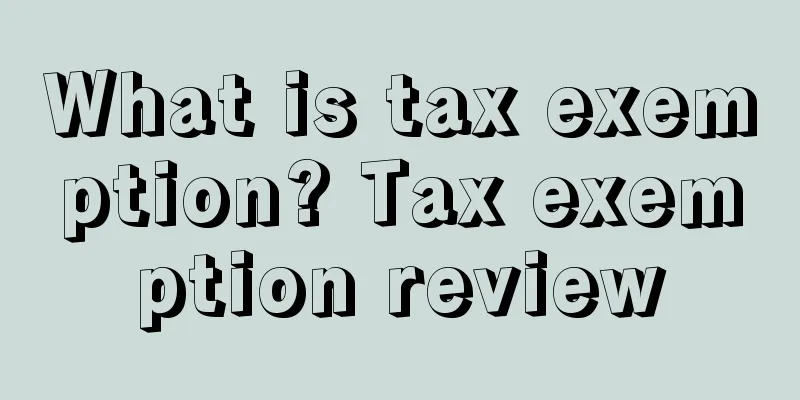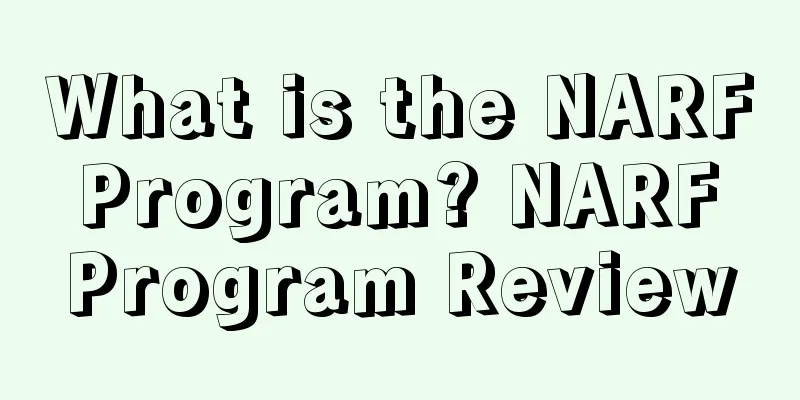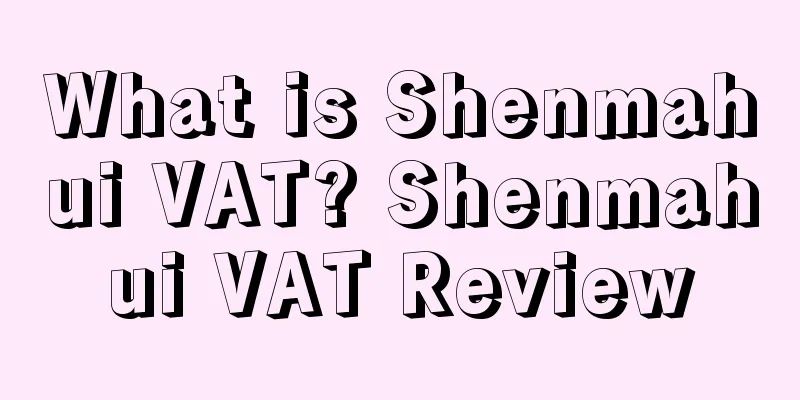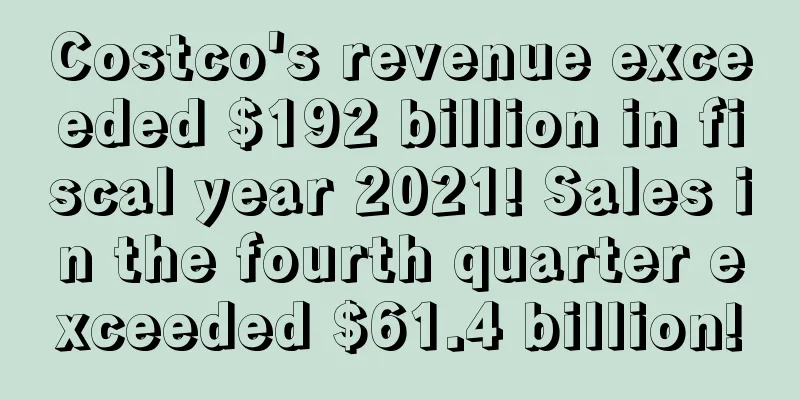What is tax exemption? Tax exemption review

|
Tax exemption refers to an encouragement or special care given by the state to certain taxpayers or taxable objects in order to achieve certain political and economic policies . Tax reduction is to reduce part of the tax payable; tax exemption is to exempt all taxes. 1. Background Duty-free In economic life, the tax system determined by tax legislation, including the establishment of tax types, the design of tax items and tax rates, is formulated based on the average bearing capacity of the general situation of social and economic development, and adapts to universal and general requirements. However, when it comes to different industries, different regions and different taxpayers and tax objects, it is often necessary to proceed from reality and give special provisions to some regions, industries, industries or taxpayers and tax objects that need support, encouragement or care, so as to reflect the principle of taxation in accordance with local conditions, differentiated treatment and reasonable burden. Therefore, on the basis of unified taxation, taking tax exemption tax incentives to adapt to individual special circumstances has become a policy measure generally adopted by tax systems in countries around the world. China has a vast territory and its economic conditions vary widely. It may be necessary to give certain support and encouragement to the development of certain industries, enterprises or products due to the requirements of national economic policies; it may be necessary to give special care to certain taxpayers who suffer unexpected losses from natural disasters; it may also be necessary to give special care because of major changes in production and operation conditions and the tax rates stipulated in the tax law are not suitable for adjustment at the moment, etc. This requires the adoption of tax reduction and exemption measures to combine the uniformity of tax laws with the necessary flexibility and deal with various special situations in taxation according to local conditions. On May 17, 2019, China's Ministry of Finance, Ministry of Commerce, Ministry of Culture and Tourism, General Administration of Customs, and State Administration of Taxation issued the "Interim Measures for the Management of Port Outbound Duty Free Shops" to standardize the management of port outbound duty-free shops.
2. Statutory tax exemption Statutory tax exemption refers to tax exemption clauses listed in tax laws. Such tax exemptions are generally stipulated by decision-making bodies with tax legislation power and included in tax laws, tax regulations and implementation rules for the corresponding tax types. Such tax exemption clauses generally have a long or unlimited tax exemption period, and the tax exemption content is highly stable. Once included in the tax law, it will generally not be modified or cancelled unless there are special circumstances. This type of tax exemption is mainly based on the overall situation of the country's (or region's) national economic macro-development and industrial planning. It provides tax support or care for projects that need to be encouraged to develop or industry fields that are related to social stability. It has long-term applicability and strong policy nature. For example, according to Article 16 of China's Provisional Regulations on Value-Added Tax, agricultural production units and individuals selling self-produced primary agricultural products are exempt from value-added tax; according to Article 6 of the Provisional Regulations on Business Tax, the childcare services provided by nurseries, kindergartens, nursing homes, and welfare institutions for the disabled are exempt from business tax. 3. Specific tax exemptions Specific tax exemptions are tax exemption clauses specially stipulated for individual and special situations in accordance with the needs of changing political and economic situations and implementing tax policies. Such tax exemptions are generally policy measures adopted because they cannot or should not be listed one by one in the tax law, or tax exemption supplementary clauses made after changes in economic situations. This type of tax exemption is generally authorized by the tax legislative body, and is decided by the national or regional administrative agencies and the national taxation department within the prescribed scope of authority. The scope of tax exemption is small, the tax exemption period is short, and the tax exemption objects are specific and clear. Most of them are for specific individual taxpayers or certain specific taxable objects and specific business operations. This type of tax exemption provision is flexible, uncertain and highly restrictive. Generally, taxpayers are required to first apply and provide relevant certification documents and related materials that meet the tax exemption conditions. After being reviewed by the local tax authorities or reported to the highest tax authorities for review and approval, they can enjoy the tax exemption benefits. For example, according to the provisions of Document No. 33 of Caishuizi [1998], border tea sold exclusively for ethnic minorities by state-designated enterprises and distribution units was exempt from value-added tax before the end of 2000; according to the provisions of Document No. 1 of Caishuizi (94), newly established independent accounting enterprises or business units engaged in consulting, information, and technical services were exempt from agricultural income tax from the first to second year. 1. Temporary tax exemption Temporary tax exemption is a special provision that exempts individual taxpayers from their tax obligations due to special difficulties or who request tax reduction for special reasons. This type of tax exemption is generally only provided in principle in tax laws and regulations, and is not limited to any industry or project. It is usually a periodic or one-time tax exemption, with the characteristics of uncertainty and unpredictability. Therefore, this type of tax exemption, like specific tax exemption, generally requires taxpayers to apply for it, and the tax authorities can only enjoy the tax exemption after review and approval within the prescribed authority. 2. Provisional Regulations on Enterprise Income Tax It is stipulated that if an enterprise encounters severe natural disasters such as wind, fire, flood, earthquake, etc. and has real difficulties in paying taxes, it may be exempted from income tax for one year with the approval of the competent tax authority. Among the above three types of tax exemption regulations, statutory tax exemption is the main method, while specific tax exemption and temporary tax exemption are auxiliary methods, which are supplements to statutory tax exemption. Countries around the world strictly control specific tax exemption and temporary tax exemption, and try to avoid the negative impacts such as arbitrariness and unfairness caused by such clauses. As China's economy is in a period of transition, economic laws and regulations are still in the stage of continuous revision and improvement. In order to ensure the implementation of various national reform measures and policies, it is not only inevitable but also necessary to timely adjust and supplement a large number of specific tax exemption and temporary tax exemption clauses on the basis of the existing statutory tax exemption policy. 4. Duty-free industry Under the macro background of China's rapid economic development, rising residents' income and rapid development of the tourism industry, China's duty-free industry, as a high-growth sector in the tourism industry, has ushered in new development opportunities. On April 20, 2011, the release of the "Notice on the Pilot of Hainan's Off-Island Duty-Free Shopping Policy for Passengers" has helped China's duty-free industry achieve leapfrog development, and China's duty-free industry has ushered in broader development opportunities. Since 1994, the duty-free industry has gradually moved towards marketization, with a qualitative leap in retail networks, business models, shopping environment, product structure and business management. The overall strength of the industry has increased rapidly, and its total sales have ranked among the top in the world. Especially since 2000, influenced by the sustained and stable growth of the global economy, the rapid development of inbound and outbound tourism, the upgrading of airport and port construction, and the opening of duty-free shops in cities, China's duty-free industry has grown rapidly, significantly faster than the growth of the global duty-free industry during the same period. In 2010, China's duty-free industry rose from the 22nd place in the previous year to the fifth place in the world. In 2010, China's duty-free industry has spread to more than 90 airports, ports and border ports in 29 provinces, municipalities and autonomous regions across the country, with annual sales of US$1.73 billion, accounting for 4.4% of the global duty-free industry. Analysts believe that the rapid development of my country's duty-free industry requires the correct development direction. First, we must actively strive for new duty-free business policies to expand the development space of duty-free shops; actively realize industrial transformation and realize the transformation and upgrading of duty-free industry to tourism retail industry. As China's tourism industry continues to rise in the global tourism industry, the duty-free industry, which is closely related to the tourism industry, will surely gain greater development space. 2010 marks the opening of a new market for the development of China's duty-free industry. The construction of Hainan International Tourism Island is bringing the "duty-free shopping for off-island passengers" policy closer and closer. In March 2011, the Ministry of Finance issued the "Announcement on the Pilot of Duty-Free Shopping for Off-Island Passengers in Hainan", which came into effect on April 20. On June 29, 2020, the Ministry of Finance, the General Administration of Customs, and the State Administration of Taxation jointly issued the "Announcement on the Duty-Free Shopping Policy for Off-Island Passengers in Hainan". Starting from July 1, the duty-free shopping quota for off-island passengers in Hainan will be increased from 30,000 yuan per person per year to 100,000 yuan, with no limit on the number of times. Since the duty-free goods business involves many issues such as the supervision of duty-free goods, the collection of national taxes, foreign exchange management, etc., the duty-free goods sales have unique business ideas and methods. China implements a policy of centralized and unified national management of the duty-free goods sales business. There are two main ways for China to operate the duty-free business: the state uses administrative means to designate state-owned professional companies to operate in a unified manner, and the government determines China's duty-free industry specialized companies through international bidding. There are five duty-free operators approved in China, namely: China Duty Free Group, Shenzhen State Duty Free Group Co., Ltd., Zhuhai Duty Free Enterprise Group Co., Ltd., Sunrise Duty Free (Shanghai) Co., Ltd. and the newly established Hainan Duty Free Operation Company. Among them, only China Duty Free Group can operate duty-free business at major airports, ports and border ports across the country without geographical restrictions, while other companies are duty-free operators operating in regional or pilot bidding. Although the duty-free industry is developing prosperously, due to its dependence on policies and relatively single business forms, continuing to develop and tap market potential remains an important topic at present. 5. Differences in tax refunds For the general public, tax refund refers to tax free shopping, which refunds value-added tax and consumption tax, with tax rates ranging from 5% to 20%; while tax exemption refers to import duty (duty, tariff), with tax rates ranging from 20% to 100%. Taking the departure tax refund pilot implemented in Hainan Province and the upcoming departure tax exemption as an example, the differences between the two are as follows: 1. Different tax types for tax refund The tax type for "departure tax refund" is value-added tax, and the tax type for "off-island duty-free" is import tariff. The former is a tax refund for ordinary consumption in non-duty-free shops, while the latter is for shopping consumption in duty-free shops. 2. Different tax refund products The main categories of goods in the "off-island duty-free" duty-free shops in the city are perfumes, handbags, cosmetics, jewelry, etc., which are usually foreign brands. The items for tax refund upon departure in Hainan stipulated in the "departure tax refund" policy mainly include clothing, shoes and hats, cosmetics, watches, jewelry, electrical appliances, stationery, sporting goods, etc., a total of 21 categories and 324 items. Food, cigarettes, alcohol, cars, motorcycles, gold and silver jewelry, etc. are not eligible for tax refund. 3. Different beneficiaries "Departure tax refund" only benefits departing foreigners, and is mainly applicable to foreigners and compatriots from Hong Kong, Macao and Taiwan who have lived in my country for no more than 183 consecutive days. "Off-island duty-free" is for any off-island tourists, including foreigners, compatriots from Hong Kong, Macao and Taiwan, as well as domestic off-island tourists, and has a wider range of benefits. 4. Tax refund rate at the tax threshold The starting point for Hainan’s “departure tax refund” is 800 yuan, and the tax refund rate is unified at 11%. According to media reports, the starting point for Hainan’s “off-island duty-free” policy is likely to be set at 5,000 yuan, and the tax refund rate for different commodity categories is 10%-40%. 5. Different designated stores Goods that are eligible for the "departure tax refund" policy can only be purchased from designated tax refund stores, and only after obtaining tax refund application forms and other tax refund certificates in accordance with regulations and completing the corresponding procedures can you enjoy the tax refund policy. Approved by the State Council, Hainan Province will set up four duty-free shops in Haikou, Sanya, Wanning and Qionghai. The "off-island duty-free" policy that is about to be launched will be provided by these four duty-free shops. The Sanya duty-free shop of China Duty Free Group Co., Ltd. was put into use on September 1, 2009. 6. Form Due to the different tax rates adopted in implementing the tax exemption method, the tax exemption method can be divided into two forms: Method of Full Exemption and Method of Progressive Exemption. 1. Full tax exemption method The full tax exemption method means that when the government of the country of residence imposes taxes on its resident taxpayers, it allows them to deduct from their taxable income the portion of income that is derived from abroad and has been taxed in the country of origin. This method is no longer common in international tax practice. 2. Progressive tax exemption method The progressive tax exemption method means that the government of the country of residence exempts income from foreign sources, but when determining the applicable tax rate of the taxpayer's total income, the tax-exempt income is included in the calculation. In other words, the tax rate applicable before the tax-exempt income is deducted is still applied to the other income of the taxpayer. Most countries that implement the tax exemption system adopt this method. 7. Advantages and Disadvantages advantage 1) It can completely eliminate international double taxation. 2) When the tax rate in the country of source is lower than that in the country of residence, the country of residence adopts the tax exemption method, which can enable the taxpayer to actually enjoy the benefits granted by the country of source. 3) Tax management is simple and easy. shortcoming 1) The tax exemption law is based on the fact that the country of residence gives up the right to tax its residents’ overseas income, which damages the interests of the country of residence. It should take into account the interests of the country of source, the country of residence, and the taxpayer. 2) When adopting the tax exemption method, if the country of residence exempts its residents from tax on their overseas income, when the tax rate of the country of origin is lower than that of the country of residence, the income obtained overseas will have a lower tax burden than the same income obtained domestically. This is inconsistent with the principle of fairness. It will also cause domestic capital and profits to be abnormally transferred to low-tax countries or tax havens. In practice, few countries adopt this method. 8. Commodities Duty-free goods are goods that are exempt from VAT in accordance with national laws. Business units import duty-free imported goods for sale and supply to specified objects in duty-free shops according to the business varieties approved by the customs. The types of duty-free goods sold by duty-free shops should be uniformly reported to the General Administration of Customs for approval by the business units. The Chinese and English words "China Duty Not Paid" are printed in prominent positions on the inner and outer packaging of duty-free imported tobacco products and alcoholic beverages sold in duty-free shops. Duty-free goods are not subject to VAT, so VAT invoices cannot be issued. Enterprises that purchase duty-free goods can deduct 10% of the purchase amount as input tax. Duty-free goods can usually be purchased in duty-free shops at airports, countries and regions where consumer goods are free, and countries that preferentially allow foreign tourists to purchase consumer goods tax-free. To purchase foreign exchange products at domestic duty-free shops, the following conditions must be met: (1) The person is a qualified supplier; (2) Valid documents that meet the requirements, i.e. passport and "Baggage Declaration Form for Inbound Passengers" or "Registration Certificate for Duty-Free Imported Articles" endorsed by the customs; (3) Holding foreign currency brought from abroad and declared to the customs; (4) Comply with the customs regulations on the inspection and release of duty-free articles, that is, the passenger is allowed to bring in a quota of duty-free articles, and the articles are within the specified range of types and quantities. Passengers who meet the above conditions can purchase duty-free goods at designated duty-free shops. After filling out a shopping list and paying at the foreign exchange duty-free shop window, go to the customs window to go through the review procedures. After the customs review and approval, the delivery copy of the shopping list will be stamped with a verification stamp. Passengers can pick up the goods at the delivery point with this list. When paying and submitting to the customs for review, valid documents that meet the regulations must be presented. The total duty-free value of the first category of items in the "Limited Quantity Table" purchased by passengers at domestic duty-free foreign exchange commodity operating units is limited to RMB 2,000 in tax-paid price, and a single variety is limited to a reasonable quantity for personal use. If the unit price of a single variety of items in the first category exceeds RMB 2,000, one piece of duty-free purchase is allowed; for purchases subject to tax, the customs will be lenient. The first category of items brought into the country by passengers and the first category of items purchased at domestic duty-free foreign exchange commodity operating units may not be combined for calculation. Duty-free shops refer to enterprises approved by the General Administration of Customs, where the operating units set up sales venues and supervised warehouses for storing duty-free goods in accordance with customs supervision requirements at locations approved by the State Council of the People's Republic of China or its authorized departments, and sell and supply duty-free goods to specified objects. The duty-free shops in China mainly include port duty-free shops, transport duty-free shops, city duty-free shops, diplomatic duty-free shops, ship duty-free shops and foreign exchange duty-free shops for Chinese people traveling abroad. IX. Law The full name of the tax exemption law is "Foreign Tax Exemption", also known as the "exemption law", which refers to the method by which the government of the country of residence exempts its residents from taxation on income from abroad that has been taxed to the government of the source country. Most European continental legal systems adopt the tax exemption law. In fact, it is the country of residence of the taxpayer that recognizes the priority of the rights of the country of origin and gives up its own right to tax. The guiding principle of the tax exemption law is to recognize the exclusive status of the tax jurisdiction of the place where the income comes from, and completely abandon the exercise of resident (citizen) jurisdiction over the part of the income that comes from foreign countries and has been taxed by foreign governments for multinational taxpayers living in the country, and exempt them from domestic income tax. This fundamentally eliminates double taxation caused by double tax jurisdiction. For example, a taxpayer earns 1.5 million yuan, of which 500,000 yuan is not taxed in the country of origin, 1 million yuan is taxed 300,000 yuan abroad, and the remaining 1.2 million yuan is taken back to the motherland. In the motherland, 1 million yuan is not taxed, and only the 500,000 yuan that has not been taxed is taxed. There are some countries that do not impose taxes on foreign income, such as Panama and Argentina. There are some countries that do not impose taxes on a specific range of foreign income under certain conditions, such as Germany, France and Spain. The OECD Model Convention on Double Taxation of Income and Capital and the United Nations Model Convention on Double Taxation between Developed and Developing Countries specifically recommend this approach. Generally speaking, the tax exemption law can enable the country's multinational taxpayers to avoid international double taxation, and can also guarantee the priority taxation rights of the country exercising territorial jurisdiction over taxation. However, since this method of avoiding international double taxation cannot guarantee that the country of residence (or country of nationality) fully exercises its resident (citizen) jurisdiction, it may affect the country's fiscal revenue, so this method is only adopted by a few countries. References |
>>: What is actual expense? Evaluation of actual expense
Recommend
35 million orders in three years? The company has stopped selling and is now going public
Since 2022, cross-border large-scale sellers have ...
Americans have no money to spend?! Are cross-border sellers facing the "coldest" winter?
Foreign media recently revealed that the US retai...
Shenzhen sellers' average monthly spending exceeds 10,000 yuan? A survey on cross-border people's consumption level
It is observed that recently, a post titled "...
What is Tailwind? Tailwind Review
Tailwind is a social media tracking tool for visua...
Walmart opens its seventh import distribution center! Perfecting the layout of the industrial chain and supply chain!
<span data-shimo-docs="[[20,"获悉,据外媒报道,近日沃尔...
When Labor Day coincides with the back-to-school season, Americans' desire to spend rises sharply
A new survey by market intelligence firm Numerato ...
The U.S. online grocery market is poised for strong growth! These trends are worth watching!
<span data-shimo-docs="[[20,"获悉,据外媒报道,根据Ch...
The current situation of Amazon's operation is that the big seller in Shenzhen can't even pay the rent!
The ever-changing international situation, Amazon&...
What is CPC? CPC Review
CPC stands for Cost Per Clicks, also known as PPC ...
What is Shiding Shield? Shiding Shield Review
"Shiding Shield" is an intellectual prop...
Zebao’s revenue in the first half of the year was 1.925 billion, with Amazon accounting for 97%!
The first half of 2021 was a year of "bloody ...
3,300 units sold! Domestic cosmetic mirrors are urgently recalled by CPSC!
<span data-shimo-docs="[[20,"获悉,据外媒报道,3月16...
What is Yunhou Global Shopping? Yunhou Global Shopping Review
Yunhou.com is an online shopping platform under BB...
Prime Day is coming! What should I do if the strike-through price is still not displayed?
Amazon Prime Day 2024 has been scheduled (July 16-...
Twitter Blue is back for $8 on Android, $11 on iOS
Twitter Blue is being relaunched to the public: An...









